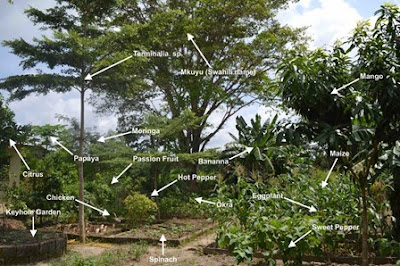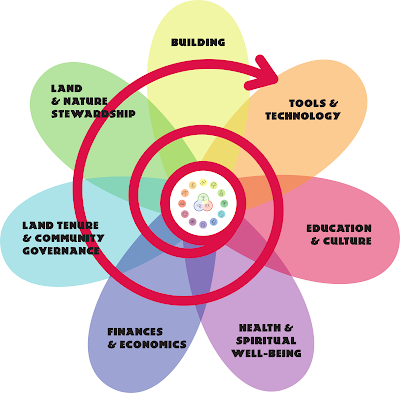PDC LESSON 3.22 NURSERY – PROPAGATION PLANTS
PERMACULTURE COURSE AGRO-ECONOMY
PDC LESSON 3.22 NURSERY
– PROPAGATION PLANTS
Many
perennials can be divided by root division. A lot of our Permaculture plants
fall into this category and hence it is very easy to build up a good stock of
planting material for your gardens.
Growing from cuttings
Many
plants can be propagated by using cuttings. The best time of the year for this
is when the temperatures are from 20- 25oC.
Cuttings fall into 3 main groups- stem, leaf and root cuttings. Stem
cuttings fall into 3 sub- groups and these are softwood, semi- hardwood and
hardwood cuttings.
Tools and equipment
A
good quality knife, sharp pair of secateurs and a razor with one edge covered
with insulation tape for easy handling, are very useful tools for cutting. A
plastic bag to carry the cuttings in transit is also a good idea as its most
important to keep the cuttings moist at all times, especially for softwood
cuttings. When looking to make cuttings, don’t go past a good thumb sized
thickness.
Softwood cuttings
These
can be taken from shrubby plants with soft green shoots. These cuttings are in
an active growth stage, so no wilting is allowed. Take these types of cuttings
in the early part of the morning when the plant is full of sap. There are
however some exceptions to this rule, and these are the geranium type plants
that actually need to dry out for a day or so before potting on. This is
because they need to form a callous first to prevent rot from occurring.
With tip- cuttings,
pull the surrounding leaves of around the area
where the stem is to be cut. Make a clean cut at a slight angle just below a
node or leaf axil. For plants with large leaves, take all the leaves of except
for the top couple. These can be cut halfway across just so there is some leaf
available for photo-synthesis. Tip-cuttings should be about 5- 10cm long and
have 4- 6 nodes. Heel cuttings are also used in the case of conifers and many
other plants.




Comments
Post a Comment